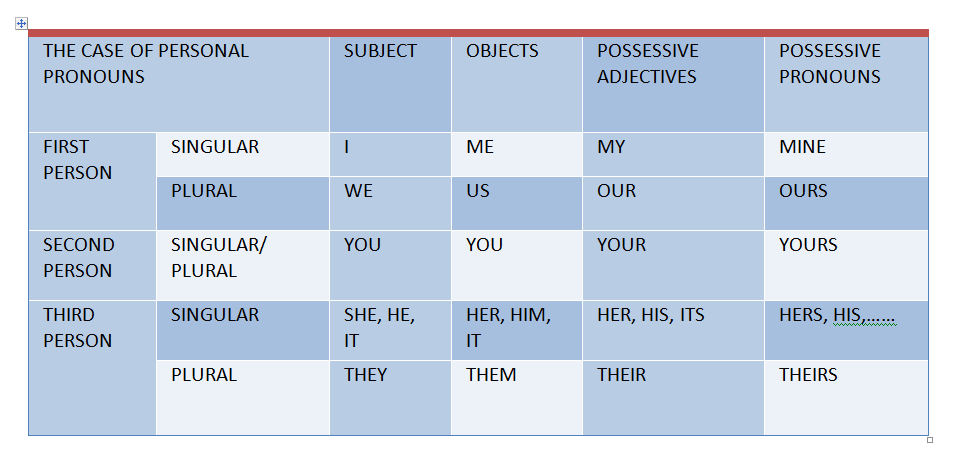

The English language (as well as many others) has gender-specific personal pronouns, traditionally “he/him/his” for the masculine and “she/her/hers” for the feminine.

A – I heard that Jeremy was cut from the team just because Tyler doesn’t like him.B – Where are Jill and Cherie? Didn’t you invite them?.A – Be careful he lied to us before and he may do it again.

D – The plate shattered when John dropped it on the floor.C – Mary wants to talk to you about your homework.The movie was hilarious! We really liked _.I heard that Jeremy was cut from the team just because Tyler doesn’t like _.Where are Jill and Cherie? Didn’t you invite _?.Be careful he lied to _ before and he may do it again.The plate shattered when John dropped _ on the floor.Mary wants to talk to _ about your homework.Our grandparents gave us candy and our teeth are just fine.He told you a lie about where he was Saturday.In the following examples, the subject is in bold, the verb is in italics, and the object pronoun is in bold and is underlined. When referring to the weather, temperature, time, an inanimate object or a child or animal of undetermined gender, the neuter form “it” can be used. The masculine or feminine subject pronoun is used whenever the gender is known. Just like subject pronouns, object pronouns can be singular or plural, masculine, feminine, or gender neutral. Making things even simpler, when the object is not a noun, it’s an object pronoun. The object is the noun or pronoun receiving the action. The subject will be the one doing the action the verb describes. Both the subject and object of the sentence will be nouns or pronouns. To find the object of a sentence, locate the nouns and verbs and mentally separate them from the rest of the words the sentence contains. If you know how to find the object of a sentence, then you will find it very easy to identify an object pronoun when you see one. You becomes You (tnis rule applies for singular and plural use).The seven basic pronouns take on different forms when used as object pronouns rather than as subject pronouns:


 0 kommentar(er)
0 kommentar(er)
